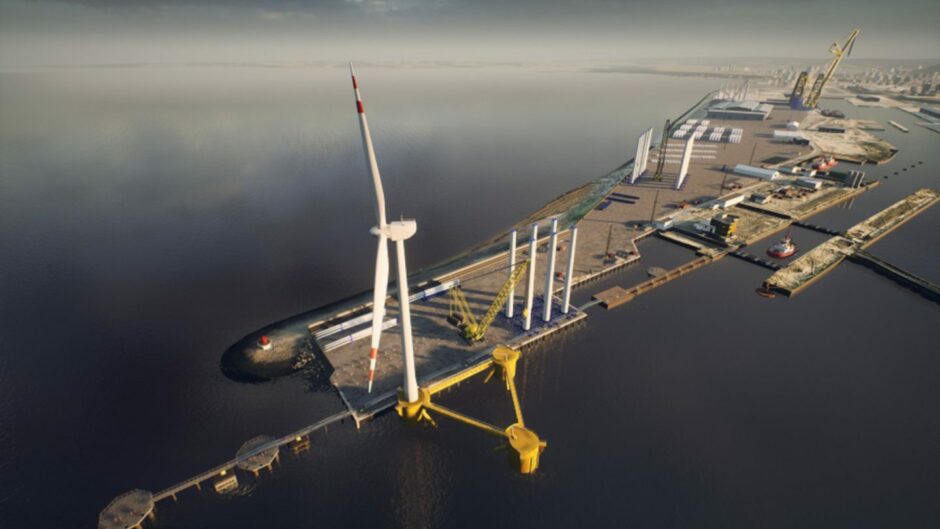
The consortium behind the Forth Green Freeport (FGF) say it is “open for business” following approval from the Scottish and UK governments today.
FGF said the approval of its Outline Business Case and the designation of the freeport’s tax sites is a “significant milestone” which will attract new businesses and jobs into the area.
The Forth consortium is one of two green freeport sites in Scotland, with the other located at the Inverness and Cromarty Firth Green Freeport.
Spanning Grangemouth, Leith, Rosyth, Burntisland and Edinburgh Airport, the Forth freeport focuses on offshore wind manufacturing and production of alternative fuels.
FGF said the suite of financial incentives attached to the freeport will help to deliver “major economic and net zero benefits” for Scotland.
The freeport consortium estimates it will deliver £7bn of private and public funding over the next decade, delivering gross value added of £8.4bn.
FGF said the investment could generate up 38,350 jobs, with almost 19,000 directly linked to the freeport’s targeted sectors and tax sites.
The most recent jobs estimate for the freeport falls short of the 50,000 originally predicted for the Forth site.
FGF chair Dame Susan Rice said the freeport is “officially open for business” and will now move through the business case development phase.
“Through innovations in offshore wind manufacturing, assembly and commissioning, alongside innovative shipbuilding, modular assembly and hydrogen manufacture, the country’s net zero targets can be boosted by Forth Green Freeport,” Dame Rice said.
“This is a long-term project and one which we know will deliver real benefits to the local communities through economic growth, skills re-training and training and access to high quality, green jobs.”
Offshore wind investment
Businesses looking to invest in the freeport will need to commit to a set of investor principles covering working conditions and net zero commitments, FGF said.
FGF said it will also invite a worker representative from the Scottish Trades Union Council to join the freeport’s governing board.
FGF said the news that Vestas is considering building a new factory at the Port of Leith shows the investment potential of the freeport.
Alongside the potential to increase offshore wind manufacturing at Burntisland and the Port of Leith, the freeport site at Grangemouth is also being looked at as a potential site for sustainable fuels production.
German energy firm RWE also recently announced plans to build a green hydrogen production plant at Grangemouth.
The Scottish and UK governments recently announced a deal to extend tax breaks for projects linked to Scotland’s green freeports for another five years to 2034.
Recommended for you


 © Supplied by Spreng Thomson
© Supplied by Spreng Thomson